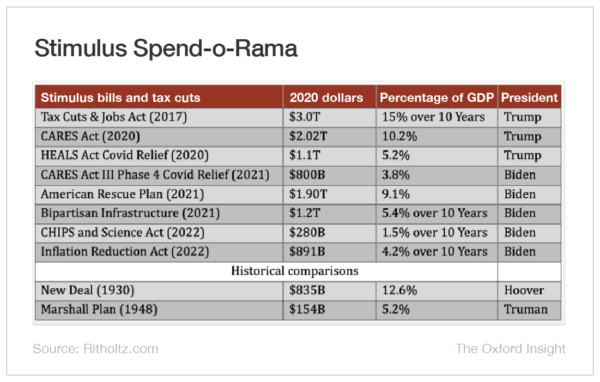Embracing Technology to Grow Your Business

Written By: Alicia Esposito
“Innovation” is a common word in the world of business, but it can often feel out of reach for small businesses. With the right technology, however, small business owners can establish processes that improve efficiencies and improve output.
To start successfully implementing innovations in your company, it is helpful to review the areas where they can be best applied. An implementation process can then be determined to install those specific technologies, systems or techniques that make the most sense for your business.
Innovations can be new ideas, methods or devices that save time, energy and expense or improve capacity, quality and speed. With this in mind, you should do three things as you consider the value of different technology innovations:
- Review what innovations can do for your business: Learn what is possible from whatever innovations you come across as you interact with your industry, so you can create a vision of potential improvements.
- Define those areas in your company that could benefit from these innovations: Sort each of the business processes you’re engaged in into a separate area to determine potential improvement zones.
- Search for new technologies and solutions that make sense for your business: Narrow your focus based on the investment areas that would facilitate future growth.
What Can Innovation Do for Your Business?
The pace of business continues to accelerate across industries, and new technology is empowering businesses to keep pace and capitalize on new growth opportunities. But before jumping into the hottest tech trend (like Gen AI, for example), consider what exactly it will do for your company. With this in mind, the following represent some of the benefits that can result from a properly implemented new idea, method or piece of equipment:
Increased Efficiency
This area of innovation relates to using less energy or requiring fewer steps and less labor to accomplish tasks that are currently necessary to keep business going. These kinds of improvements often involve the removal of unnecessary blocks to productivity or a revision in the way existing processes are done through new equipment, new methods or both.
Improved Capacity
Understanding what your current capacity is and what makes sense in terms of the capacity goals for a business the size of your company will help you decide if increasing capacity is the next logical step. An example of capacity improvement would be a manual screen-printing shop that adds an automated press.
Cost Reduction
Innovations that reduce the cost of product or service creation are becoming increasingly popular as labor costs continue to rise. Sometimes the resulting savings can be passed along to the customer. Other times, the savings can be added directly to your own bottom line.
Diversification of Services
Many shops these days are looking to recent innovations to add an additional decorating method without necessarily having to create a lot of extra shop space or add labor. Examples of the kind of equipment that makes this possible include the previously mentioned innovations in DTF and DTG. Other examples include some of the smaller, event-style or live-decorating types of equipment now on the market, which can be utilized to provide additional in-house services.
Improved Profit Margins
Among the more popular forms of innovations are those that allow a business to make more money while doing the same or less work. To achieve this, software systems, standardized processes and other digital products can provide faster, cheaper preparation steps as well as quicker timelines with less overall waste. Examples that help improve margins in this fashion include digital business management systems (BMS) or enterprise resource planning (ERP) solutions that can dramatically reduce the time and cost involved in completing tasks your company is already doing.
Sustainability
As the industry becomes increasingly aware of the need to address its environmental impact, innovations helping businesses reduce waste and generally improve the work environment for their employees are becoming essential.
Something to think about as consider transforming your business processes: depending on the specific solution you go with, there is often a cascading effect, with companies seeing additional long-term benefits over time and in other functional areas.
Which brings us to the next step: looking at the areas in your company it makes sense to address.
Areas to Implement Innovation
This part of the investment review will differ significantly depending on your company’s structure, teams and processes. Be sure to obtain some expert advice that is specific to your company before investing in or dramatically changing your current organization. Some of the general areas where innovation is now taking place include:
Sales and Marketing
Exciting new digital innovations in marketing and customer acquisition offer possibilities that never before existed, with software and AI services such as ChatGPT, rapidly becoming essential in these two vital areas. Employing services outside your company can not only assist with overflow, it can also allow you to take advantage of some of the latest AI services on the market, like Midjourney, which has helped creative teams accelerate ideation and creative collaboration.
Fulfillment
The pandemic changed many organizations’ ordering processes, with consumers increasingly relying on ecommerce. There are many new ideas, products and services to consider when dealing with smaller order sizes or managing inventory and ecommerce orders.
Order Processing
Software systems continue to offer improved integration and provide management tools for tracking customer orders. Today’s software even makes it possible for customers to keep tabs on how their orders are progressing without having to talk to a single person within your business. Adding a system to help modernize order tracking and processing frees up employees to do other, more creative or productive work, in addition to helping the bottom line.
What Innovations Should You Adopt?
Establishing a vision will provide you with a clear set of targets you can employ as you research potential solutions. As you are doing so, consider the scope of the change(s) you are thinking about making. Will they consist of a “refinement” that improves the efficiency of a process you are already engaged in while not necessarily growing your business? Or are you interested in “leveling up,” adding capacity or quality or both? The thing to avoid is trying to do too much too soon or having unrealistic expectations.
The following is a short framework to help you work your way through the decision-making process:
- What are you looking to achieve? Is the goal to increase revenue, capacity or the overall size of your business? Define what you are looking to achieve, so you can measure the success of your effort.
- What timeframes and costs are involved? Make sure you have a handle on all possible costs. Project these costs over time, so there are no unpleasant surprises.
- Include any affected employees in the process as early as possible. Doing so will encourage their ownership of the process and likely provide you with some valuable feedback prior to implementation.
Given the rate of change in today’s business climate, once you have done your homework and received the requisite professional guidance required, it only makes sense to implement beneficial innovations as quickly as you can. The sooner you improve your company, the more you will distance yourself from those businesses that have decided to wait before making a move — and the more you’ll position your business for success.
Where in Your Business Should You Innovate?
At this point, you may be thinking that all sounds great, but you are too busy dealing with the day-to-day to take time from your company to look for ways to innovate. This is a common issue.
To get ongoing insight from industry peers, consider attending key trade shows or join social networking groups and communities where your peers ask questions and share their experiences. You also can tap into industry-specific trade media, which can offer tailor advice and data to validate your decisions.
Ultimately, taking an intentional approach to innovation is one of the best ways to rapidly improve on multiple fronts. Having a vision of what you would like to improve, a specific area in your company to address and a plan for the new processes or systems you want to implement will position you for measurable success. Once you implement technology in one area, you’ll be able to glean lessons that you can apply for future projects.





